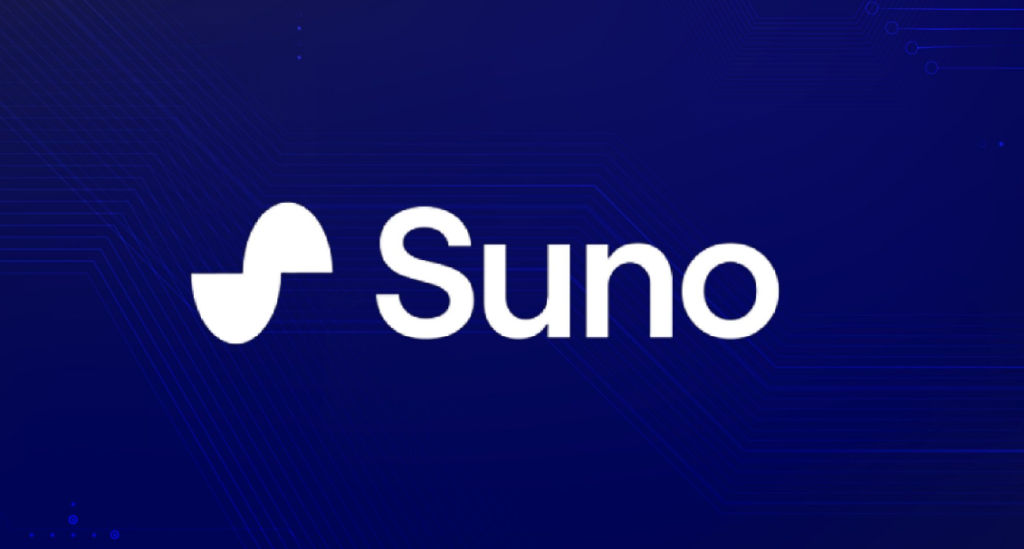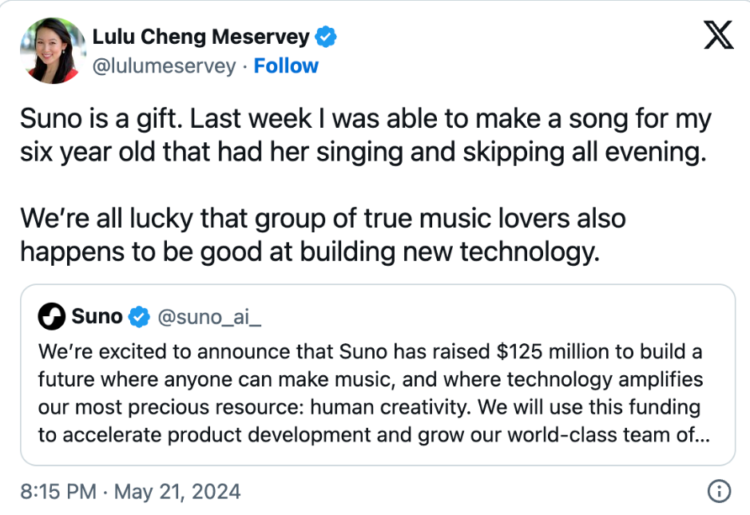Venture capital investors recently raised $125M for Suno, an artificial intelligence (AI) music creation platform.

Suno declared on May 21 that it has secured $125 million in funding from investors with the purported objective of democratizing beat-making. The organization disclosed that the allocation of the funds would be towards the advancement of products and the expansion of its workforce.
Suno released a melody specially composed and generated by artificial intelligence as a component of its funding announcement.
The initial product of the platform, which debuted eight months prior, enabled users to compose melodies in response to straightforward textual instructions.
Presently, individuals provide textual instructions specifying their preferred “song description” and have the option to determine whether the composition shall feature vocalists or remain entirely instrumental.
In addition to generating the composition, the system produces album artwork and editable titles. In addition to adding their own words to the AI-generated lyrics, users can extend the original track.
With the prompt “Create a theme song for the publication Cointelegraph,” Cointelegraph provided an exemplar of the tool. The music style was inherently associated with the terms “trap, energetic, upbeat,” resulting in a two-minute track’s organic formation.
When instructed to generate lyrics, the system produced an extensive text comprising the following lines: “Blockchain emerged and caused a stir; Decentralized power, an entirely new regime; The cryptocurrency industry, an unbridled beast; Cointelegraph at the forefront, unyielding.”
Suno asserts that ten million users, including Grammy-winning artists, have made music on its platform.
Social media is already abuzz with interest in the platform; one X user referred to the new AI tool as a “gift” because it enabled her to compose a melody for her child.

Although Suno is a captivating platform, it is not the initial online environment that enables users to generate AI-generated music through text input.
Google and Meta, two Big Tech competitors developing high-performance AI models, introduced their own AI-generated music creation platforms in the summer of 2023.
Suno’s free version, on the other hand, allows users to compose tracks of up to two minutes in length, as opposed to Google’s MusicFX’s thirty seconds. This feature, including chord progressions and various song sections, lends a more melodic quality to the tracks.
To safeguard the copyrighted material of their artists, heavyweights in the music industry, such as Sony and Universal Music, have taken a stance against AI-generated developers in the past year. This has prompted considerable controversy.
Rick Beato, a prominent music YouTuber, recently featured futurist Ted Gioia in a video discussing the proliferation of AI-generated music on platforms such as Spotify, which they call “ghost music” because it fills playlists and generates royalties from streaming.
Last year, a survey found that more than half of the musicians surveyed were concerned about how the audience would perceive the use of AI, even though musicians remain wary of AI.
